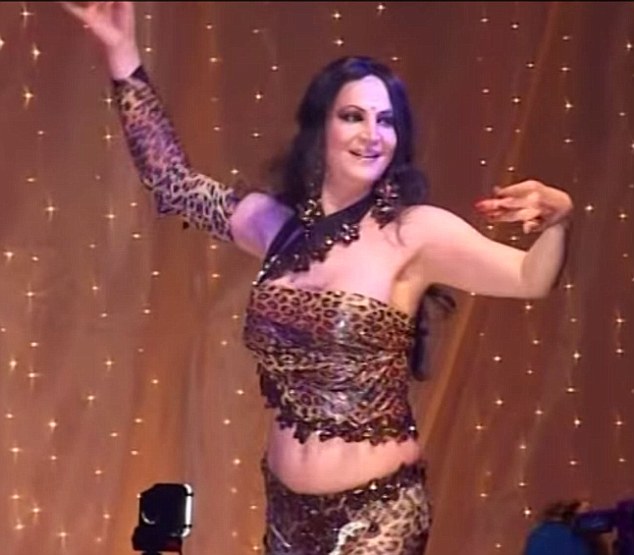It was a slow night on the red carpet at the opening of the Marrakech film festival for the photographers and everyone was complaining over the lack of celebrities.
Then a car pulled up and out stepped Noor Talbi, Morocco's most famous belly dancer.
The photographers went wild. Darling of the jet set and a fixture for any society party or hotel opening, Noor's statuesque six feet frame was clothed in a spangled, off-the-shoulder ballgown slit up the side to reveal her long legs.
Legs, that as a teenage athlete, won her a gold medal in the 440-meter hurdles at the national level — back when she was a boy who went by the name of Nourreddine.
In this conservative Muslim country where homosexuality is illegal and punishable by up to three years in jail, a transgender woman like Noor is not only accepted but is a celebrity. Her ability to seemingly transcend the restrictions of her culture speaks both to her star power and to a certain kind of tolerance toward sexual minorities in this North African nation — and even in the wider Middle East.
There are references to men affecting the clothes and attitudes of women in the Quran. In countries like Iran and Egypt, while homosexuality is illegal, gender change surgery is allowed, especially for those born hermaphrodites. Cross-dressing is also often found in the entertainment world and in Turkey one of the most famous singers of classical music was also once a man.
Casablanca, Noor's hometown, looms large in the history of gender-reassignment operations. From the 1950s to the 1970s it was home to the clinic of George Burou, who revolutionized the science of turning men into women, including British model April Ashley and French cabaret dancer Coccinelle.
Noor appears to enjoy nothing but success: She has starred in several movies, headlined weddings for the wealthy, and is a regular on red carpets and big events. But there are limits. She cannot get her identity card changed to reflect her new gender, and Moroccan state television refuses to put her on air.
'Gender non-conformity is entertaining and confusing as long as it's safely confined to a stage or TV screen, not something you meet on the street,' warned Scott Long, a rights activist with long experience in the Middle East. 'Social prejudice against people who don't conform to gender norms is very strong.'
When Noor arrived for her interview with The Associated Press, she glided into the lobby of the Sofitel in Casablanca dressed in a form-fitting black jacket and pants with heeled boots that set her well above everyone else in the room. She sat with the perfect posture of a dancer and in her husky voice spoke in French about the performances she was giving around the world.
(dailymail.co.uk)
ANN.Az




Follow us !











